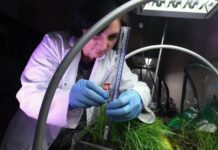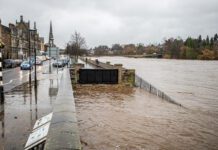Mario Kelly of water, energy and maintenance solutions provider NCH Europe offers a few thoughts on a contemporary headache – the fatberg.
FORGET alligators, fatbergs are the modern day menace in our sewer systems – but unlike the infamous reptiles, they are no urban myth. Earlier this year a ten tonne mass of fat and wet wipes had to be extracted from a 1940s sewer pipe that had collapsed under its weight in Chelsea, London. These masses of grease and fat are causing local authorities a massive headache. So what can businesses do to help lessen the strain?
In 2015 the streets of Malabon, north of Manila, were transformed into rivers after the typhoons Egay and Falcon, but these natural phenomena’s can’t be entirely blamed. Flooding was massively exacerbated by fatbergs blocking sewer systems and preventing water moving away from the streets. This is proof that this global, man-made, epidemic has the potential, in extreme situations, to put lives at risk as well as cost authorities vast sums of cash.

Earlier last year a ten-tonne mass of fat and wet wipes had to be extracted from a 1940s sewer pipe in London that had collapsed under its weight.
To avoid damage, teams of local authority or Government workers have to enter sewer systems to break down these monstrous deposits manually, with shovels, chemicals and high-pressure hoses. If the, often mobile, fatbergs aren’t kept in check they can do much more harm than a bit of flooding. For example, broadband cables often take advantage of the warren of sewer pipes to connect major cities to the internet, and a fatberg has the potential to dislodge these lifelines.
Counting the cost
Dublin council spends e1m every year maintaining the city’s sewers, and in 2008 it introduced a control-and-prevention programme to battle fatbergs that required food service establishments to be licensed. To support this initiative, compliance teams carry out over 8,000 inspections a year, while a ‘risk map’ helps Irish Water to target inspections and preventative maintenance. According to University College Dublin, the council has managed to reduce sewer blockages from 1,000 a year to just 50, and its last major fatberg blockage was five years ago. NCH’s BioAmp system was approved by Dublin City Council to help solve this problem and reduce the amount of fat, oils and grease (FOG) being discharged to the sewers.
The success of this initiative proves that tackling the issue at source, rather than waging war from within the pipes, is the path to bringing this epidemic under control. While household waste is always going to be the potential Achilles heel of this approach, businesses such as hotels, restaurants, food manufacturers and takeaways are the biggest contributors to fatberg growth and should be doing more to prevent them.
There is much that can be achieved by implementing suitable grease traps within a business, but it’s unrealistic to expect a busy restaurant or hotel to completely sift all grease out before it mixes with the waste water. When it comes to disposing of waste water, businesses across Europe often fall into the trap of thinking that if they have paid what is deemed a fair fee by their local authority, their hands are clean. However, this is not necessarily the case.
Effluent water from hotels, restaurants and food processing plants is always going to contain contaminants that, once released into the local sewer system, will feed a hungry fatberg. That’s why it’s time for businesses to take things a step further with their waste water treatment. To this end, at NCH Europe we’ve developed the ideal solution that will help local authorities, businesses and the environment.
Our BioAmp delivery system and the FreeFlow water treatment product, uses live, naturally occurring bacteria to break down fats, oils, greases, suspended solids and other contaminants in water. FreeFlow bacteria actually digest contaminants, unlike solvents and free enzyme products. This means that, by the time effluent reaches the sewer system, there’s nothing left for a Fatberg to feast on.
With solutions such as this, combined with advances in grease trap technology, there’s no reason this phenomenon should be allowed to continue. Businesses just need to take a few small, affordable steps to support their local authority, save money on their annual effluent water disposal fees and, most importantly, give the rule of our sewers back to the fabled alligators.







